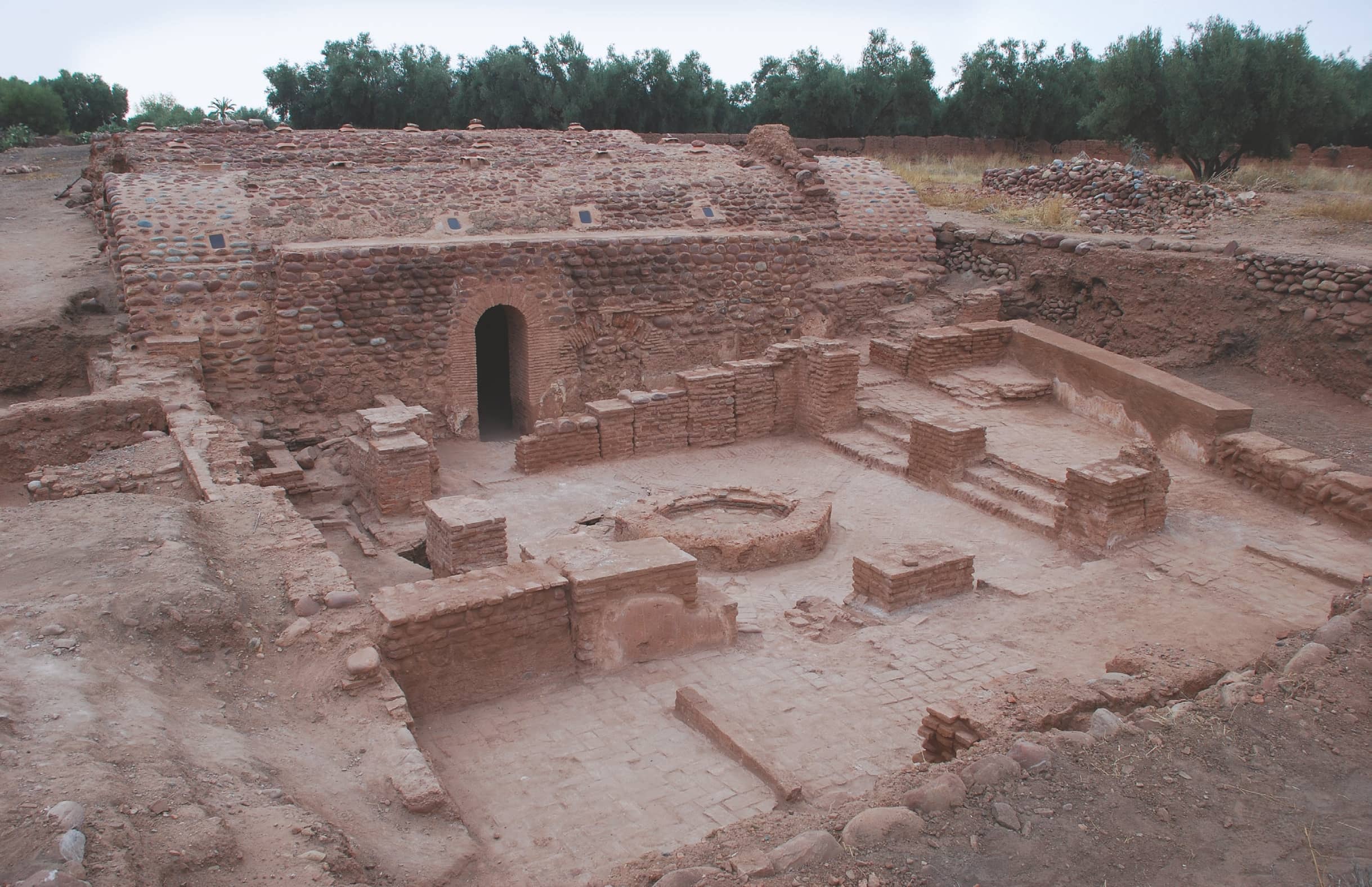SPLENDOR AT THE EDGE OF THE SAHARA
Archaeology
|May/June 2020
Excavations of a bustling medieval city tell the tale of a powerful Berber dynasty

Fifteen years ago, retired archaeologist Ronald Messier, who had spent much of his career excavating the site of Sijilmasa on the northern edge of the Sahara, got a phone call from Frederick Vreeland, a former American ambassador to Morocco and the son of the fashion editor and columnist Diana Vreeland. Vreeland, who was also retired and lived on an estate just south of the bustling city of Marrakech, asked Messier to come and take a look at some nearby ruins that locals called the hammam, the Arabic word for bathhouse. Vreeland was concerned that something important might be slipping away from decay and neglect at the dilapidated site next to a slaughterhouse on the outskirts of the modern village of Ghmat.
Messier visited the site a few days later, and, after just a few minutes of inspecting the tops of three well-worn stone and brick domes poking out of the red soil amid the trash, was convinced it was, indeed, important. “I could tell from the pottery sherds scattered about that the remains went back to the Middle Ages,” says Messier, a professor emeritus at Middle Tennessee State University. “I knew that this was likely the ruins of medieval Aghmat.” The location of Aghmat, which is partially encircled by the foothills of the High Atlas Mountains, was not a mystery. From the ninth through the fourteenth centuries, the city was a key trans-Saharan trading hub. It is well-known from contemporaneous texts and is even noted on a few modern maps. But while many travelers over the centuries had sketched the ruins, and the site was partially surveyed by French archaeologists in the 1990s, it had never been excavated.

This story is from the May/June 2020 edition of Archaeology.
Subscribe to Magzter GOLD to access thousands of curated premium stories, and 10,000+ magazines and newspapers.
Already a subscriber? Sign In
MORE STORIES FROM Archaeology

Archaeology
THE EGYPTIAN SEQUENCE
Until now, the earliest Egyptians to have even part of their DNA sequenced were three people who lived between 787 and 544 B.C.
1 mins
November/December 2025

Archaeology
SOURCE MATERIAL
As early as 40,000 years ago, some hunter-gatherers in southern Africa ventured long distances to procure special types of stone to make their tools.
1 min
November/December 2025

Archaeology
Secrets of the Seven Wonders
How archaeologists are rediscovering the ancient world's most marvelous monuments
13 mins
November/December 2025

Archaeology
ACTS OF FAITH
Evidence emerges of the day in 1562 when an infamous Spanish cleric tried to destroy Maya religion
12 mins
November/December 2025

Archaeology
OASIS MAKERS OF ARABIA
Researchers are just beginning to understand how people thrived in the desert of Oman some 5,000 years ago
8 mins
November/December 2025

Archaeology
FOSSIL FORCE
One of the planet's most successful arthropods, trilobites, abounded in the oceans from about 520 million to 250 million years ago.
1 min
November/December 2025

Archaeology
BIGHORN MEDICINE WHEEL, WYOMING
Perched almost 9,700 feet above sea level on Medicine Mountain in Wyoming's Bighorn Range, the Medicine Wheel is an 80-foot-diameter circular structure made from limestone boulders.
2 mins
November/December 2025
Archaeology
ANCIENT LOOK BOOK
A young woman buried in China's Tarim Basin some 2,000 years ago went to the afterlife accompanied by the height of fashion.
1 mins
November/December 2025

Archaeology
A FAMILIAR FACE
In the early eleventh century, a landslide on the island of Ostrów Lednicki in western Poland caused a hillfort to collapse and slip to the bottom of Lake Lednica.
1 min
November/December 2025

Archaeology
Temples to Tradition
A looted cache of bronzes compels archaeologists to explore Celtic sanctuaries across Burgundy
13 mins
November/December 2025
Translate
Change font size

